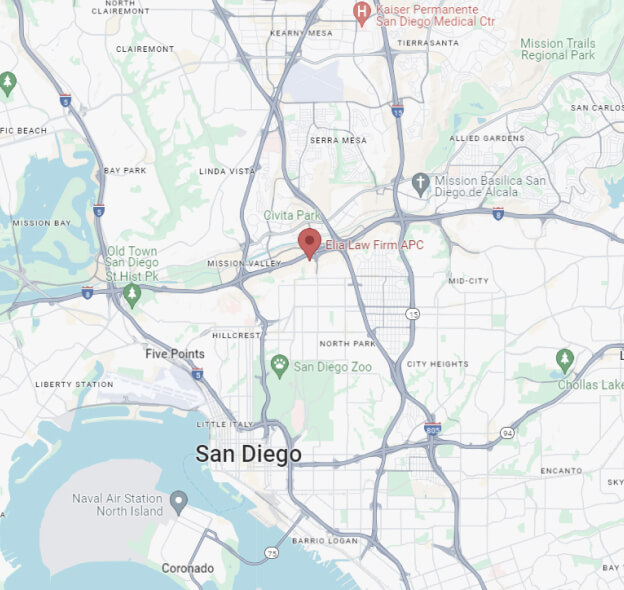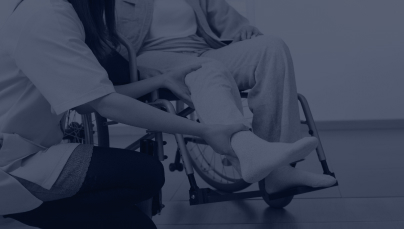You’re in an accident. The other driver was drunk and subsequently convicted of a DUI charge. Is he/she at fault? Is your case a slam dunk?
Establishing proof is an important part of both civil and criminal cases, but as any attorney will tell you, proving your case is easier said than done. When there is the concurrence of both civil and criminal litigation surrounding the same case, however, criminal charges can weigh heavily on the outcome of a civil lawsuit and speed up the judgment and settlement to the benefit of the plaintiff. Here’s how.
What It Takes to Win a Criminal Case
In a criminal trial, the prosecution is required to prove that the defendant committed an act beyond a reasonable doubt. This means that when presented with a body of evidence, a guilty verdict is handed down because no reasonable doubt exists based on the facts.
What It Takes to Win a Civil Case
On the other hand, civil cases are based on a preponderance of the evidence. This is a lower standard of proof. The plaintiff, the person who has filed a lawsuit, must provide evidence that the defendant acted in such a way as to cause harm or damage. In civil cases, the defendant does not need to prove his or her innocence. It is up to the plaintiff to convince the court that the defendant was at fault, and proving negligence is the main focus.
There are 4 things that must be proven to win your personal injury case
- The first is that the defendant (the person against whom the lawsuit is filed) has a duty to the plaintiff.
- Second, it must be shown that the defendant did not use the care a prudent person would take to prevent harm. In failing to do this, the individual breached his or her duty.
- The third element involves causation. This means the defendant’s actions caused injury to the plaintiff.
- The fourth element is that the accident caused actual damages.
Proving negligence in civil cases isn’t easy. As mentioned above, it requires a preponderance of evidence, and of course the opposing counsel will have his own to back up his side, making your responsibility to prove fault that much harder if you happen to be the plaintiff.
When a criminal judgement is involved, though, proof becomes easier
Let’s take a DUI case as an example of a criminal conviction and see how that can be used in a personal injury case. Remember, to win an injury case, you need to prove breach of duty (or failure to use care), causation and damages.
For someone to be convicted of a DUI, it has to be proven first that they were driving under the influence and past the legal allowed limit. When that is done and a conviction results, the condition of point 2 above has been met. That person breached his duty by failing to use care, and the criminal DUI conviction says there is no doubt to that effect. If you are the plaintiff suing for damages, you are free from having to prove breach of duty because the court has already done that for you.
Case closed, right?
Wrong.
Remember, in personal injury cases, it is up to the plaintiff to convince the court that the defendant also caused the injury. A conviction in criminal court means the civil lawsuit can use the conviction as proof of negligence.
But cause still needs to be proven, and while doing so is more complex without the criminal case, it is not a slam dunk. Take this case as an example.
Negligence does not equate to cause
In Middlebury, Vermont in July of 2015, a deadly crash pitted police against the cycling community. An alleged drunk driver who collided with a cyclist, and was subsequently not charged with the biker’s death.
It was clearly proven that Holly Gonyeau had a blood alcohol content above the legal limit to drive. But investigators said evidence collected from the scene puts the cyclist at fault. According to WCAX.com:
“The state police crash reconstruction team concluded the cyclist was at fault. Troopers say on June 17, Gonyeau’s car and Najarian’s bike were both headed south on Greenbush Rd. Gonyeau allegedly crossed the center line into the northbound lane to give Najarian space as she tried to pass, but police say at the same time, the cyclist made an abrupt U-turn. The car and bike collided in the northbound lane, mid U-turn.”
It took the plaintiff’s skilled attorney to keep the attention of the jury on what really was the cause of the accident and the damages which was the cyclist’s actions and not the DUI.
This case is not alone. And the point here is that while a DUI criminal conviction can help winning a personal injury case easier because there is without a doubt a breach of duty that has already been proven, it does not necessarily prove cause. Your case is not yet closed.
What should you do if you’ve been injured in a DUI accident?
Whether or not you were driving drunk or sober, if you suffered an injury because of the negligence of someone else, you deserve compensation. Proving negligence and cause is not always easy though – especially if there are many fingers pointing back at a (or maybe your) DUI conviction. So as in any injury accident, always consult with a personal injury attorney who will work hard to see that you receive compensation for any financial and emotional loss you suffered if due – and not what an insurance company wants to you to have.
If you’ve been injured in an accident in the San Diego area, obtain a free consultation with the personal injury attorneys at the law firm of Steven A. Elia by calling (619) 444-2244, and take the first step in recovering your financial damages. Our firm’s experienced personal injury attorneys can begin the discovery process to determine negligence, and we have an excellent record of protecting client’s rights and obtaining the compensation they deserve.
You may also like reading about one of our cases in which the DUI driver won his case and was awarded $800,000!
- Who Is at Fault in a Motorcycle Lane Splitting Accident in California? - August 26, 2024
- Are Dogs Attacking Without Warning or Are We Misinterpreting Key Signals? - March 4, 2024
- Can You Sue If No One Witnessed Your Slip and Fall Injury? - February 10, 2024












